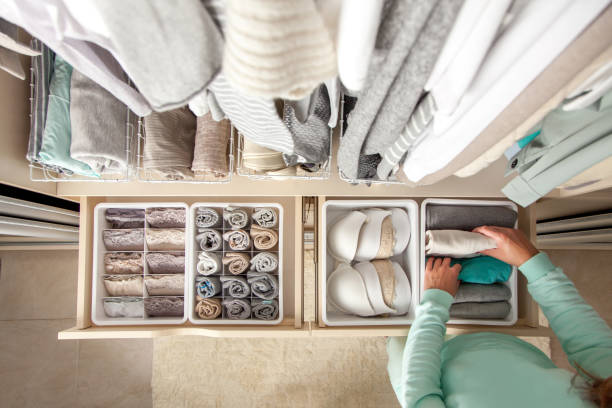
Mix white vinegar, water, and lemon rind for a versatile all-purpose spray. This cleaner works well on countertops, windows, and mirrors while leaving a fresh citrus scent.
It's effective for removing grime, light stains, and bacteria from everyday surfaces. Vinegar’s acidity makes it a strong yet safe solution for most areas of your home.
To boost the scent, add a few drops of essential oil. Tea tree and lavender oils are both antimicrobial and add a pleasant, calming fragrance.
Store in a glass spray bottle to preserve the oils and shake before each use. Avoid using on natural stone like granite or marble.
Create a powerful scrub using baking soda and water for tubs, sinks, and stovetops. This combination is mildly abrasive and helps remove tough residue without scratching surfaces.
You can also add a dash of liquid soap for extra cleaning strength. It works well in kitchens and bathrooms where buildup tends to accumulate.
Apply the paste, scrub gently with a sponge, and rinse well. It's a great natural option for tiles and oven interiors.
The paste is easy to store in airtight containers and can be enhanced with lemon juice for extra cleaning power.
Mix castile soap with warm water and a few drops of essential oil for mopping floors. This solution lifts dirt while keeping your surfaces safe for children and pets.
Ideal for tile and laminate flooring, this cleaner offers a natural shine without synthetic residues. Use a damp mop for best results.
This mixture can also be used for spot-cleaning spills without needing store-bought chemicals. It’s budget-friendly and simple to prepare.
While you're at home cleaning, you might consider using a rent a car service to run errands efficiently without worrying about vehicle maintenance.
Fill a jar with citrus peels and cover with white vinegar. Let it sit for two weeks, strain, and use as a natural disinfectant.
This cleaner is great for cutting boards, sinks, and trash bins. The citrus oil boosts antimicrobial power and leaves a refreshing smell.
It’s a non-toxic option that keeps your kitchen and bathroom safe and sparkling. Use it as a spray or pour it directly on tough spots.
Keep it stored in a cool place for long-lasting freshness. A glass container helps maintain the potency of the citrus oils.
Combine rubbing alcohol, white vinegar, and water for a streak-free glass cleaner. Spray and wipe with a microfiber cloth for best results.
This formula dries quickly and leaves no residue, ideal for mirrors and windows. It's also safe for eyeglasses and phone screens.
Use it regularly to reduce dust and smudges on all reflective surfaces. Add essential oil if you prefer a scented version.
Store it in a labeled spray bottle and keep out of direct sunlight for longer shelf life.
Mix baking soda with vinegar and pour it into the toilet bowl. Let it fizz for 10 minutes, scrub, and flush for a fresh clean.
This natural method eliminates odors and stains without harsh bleach. Safe for plumbing, it’s effective and eco-friendly.Essential oils like eucalyptus or peppermint can be added for deodorizing benefits.
Make a refreshing air spray with water, vodka or witch hazel, and essential oils. Spray in rooms, linens, or inside closets.
This DIY option avoids harmful aerosols found in commercial sprays. Customize the scent to fit your mood and seasons.
Lavender, lemon, or cinnamon oils work well for year-round use.
Shake before each use and store in a dark-colored bottle to preserve essential oils.
Yes, when made correctly, many homemade cleaners work just as well for everyday cleaning tasks without harmful chemicals.
Most can include essential oils, but avoid them on surfaces sensitive to oil or in households with certain pets.
They typically last 2–3 weeks if stored properly in sealed containers, away from direct sunlight.
Yes, most natural cleaners are safer than commercial ones, especially when using food-safe ingredients like vinegar and baking soda.
Some combinations work well, but avoid mixing vinegar with castile soap or hydrogen peroxide to prevent neutralization or irritation.